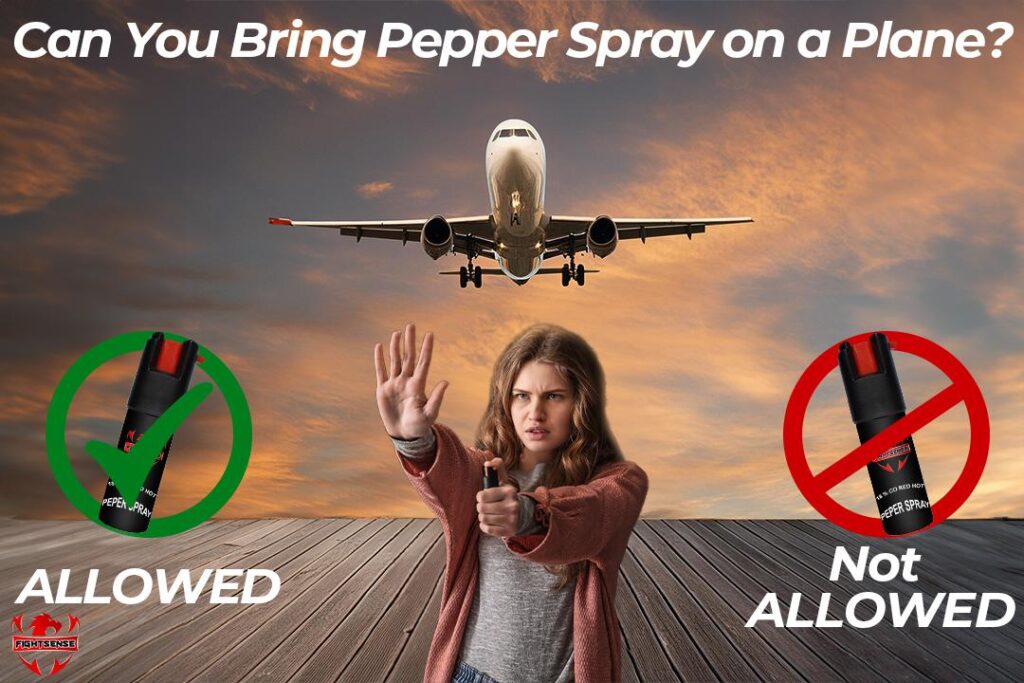Table of Contents
- Global Variations in Airport Pepper Spray Regulations and Restrictions
- Understanding Legal Implications of Carrying Pepper Spray on International Flights
- Safe Alternatives to Pepper Spray for Personal Protection While Traveling
- Practical Tips for Complying with Airport Security and Avoiding Confiscation
- Final Thoughts
Global Variations in Airport Pepper Spray Regulations and Restrictions
When it comes to traveling with pepper spray, regulations vary dramatically by country, often reflecting each nation’s legal stance on self-defense tools. Some countries, like the United States and Canada, allow pepper spray in limited quantities, typically mandating that containers be small (usually under 2 ounces) and clearly labeled. Conversely, many European countries implement stricter rules; for example, in the United Kingdom, pepper spray is classified as a prohibited weapon, making possession illegal for civilians. Asia and the Middle East showcase a patchwork of laws – while Japan restricts pepper spray to law enforcement only, countries such as the UAE impose severe penalties for unauthorized possession, including fines and imprisonment.
Travelers should pay particular attention to:
- Quantity limits: Many airports and countries impose strict size restrictions or ban pepper spray entirely.
- Packaging rules: Tamper-proof safety caps and sealed packaging might be mandatory.
- Declaration requirements: In some regions, you must declare pepper spray at customs or security checkpoints.
- Transit restrictions: Even if pepper spray is allowed at your destination, it may be prohibited in a transit country’s airport.
Understanding Legal Implications of Carrying Pepper Spray on International Flights
Travelers should be acutely aware that the legal status of carrying pepper spray varies significantly across international jurisdictions, making compliance crucial when flying abroad. While pepper spray may be considered a self-defense tool in some countries, in others it can be classified as a prohibited weapon or a controlled substance, subject to strict regulations or outright bans. Airports and airlines typically enforce these regulations rigorously, and possession of pepper spray in carry-on luggage can lead to confiscation, hefty fines, or even legal prosecution. Understanding the local laws of both your departure and arrival countries is essential to avoid these complications.
There are a few key points to keep in mind before packing pepper spray for international air travel:
- Check airline policies: Some carriers have stricter rules than national regulations, often banning pepper spray entirely in both carry-on and checked baggage.
- Declare when necessary: If permitted, certain countries require you to declare pepper spray at customs or airport security checkpoints.
- Know permissible quantities and formulations: There may be limits on the volume allowed, along with restrictions on ingredients or propellants.
Safe Alternatives to Pepper Spray for Personal Protection While Traveling
When traveling, especially to destinations with strict regulations on pepper spray, it’s crucial to explore non-restricted personal protection tools that blend safety with compliance. Items like personal alarms emit loud, attention-grabbing sounds that can deter potential threats and alert nearby people without posing physical harm. Similarly, tactical flashlights serve dual purposes: they illuminate dark areas and can temporarily blind an attacker when directed properly. Additionally, lightweight self-defense keychains-such as kubotans or mini batons-offer discreet means of protection that don’t fall under hazardous materials, making them ideal companions on any journey.
Another excellent option involves leveraging modern technology by using smartphone safety apps that can instantly alert trusted contacts or local authorities with your location during emergencies. Moreover, carrying a sturdy whistle can be surprisingly effective in scaring off a would-be assailant through loud, piercing tones. These alternatives demonstrate that personal security doesn’t rely solely on chemical deterrents but can be maintained through creativity, technology, and legal tools that prioritize traveler safety without risking airport security complications.
Practical Tips for Complying with Airport Security and Avoiding Confiscation
When preparing for your journey, it’s essential to be well-versed in the security protocols surrounding pepper spray. Always check the regulations of both the departing and arriving countries as many airports enforce strict rules that can differ drastically. To avoid delays or confiscations, pack your pepper spray securely in checked baggage rather than carry-on. If traveling through multiple airports, verify each airport’s policy because some may allow pepper spray in checked bags but prohibit it entirely on their premises. Additionally, ensure the container complies with size restrictions; most airports typically restrict sprays larger than 100ml.
Maintaining transparency with security personnel can also ease your passage through checkpoints. Declare your pepper spray when prompted and keep it easily accessible for inspection. Proper labeling and original packaging can prevent misunderstandings. Besides compliance, consider alternatives like travel-size versions or non-aerosol self-defense options that may be more travel-friendly. Here are quick reminders to keep in mind:
- Consult official airport and airline websites before packing.
- Never attempt to conceal or misrepresent your pepper spray.
- Understand local laws regarding possession and transport.
- Use protective cases or locks if permitted to minimize risk of accidental discharge.
Final Thoughts
In today’s world, staying informed about airport security regulations is more important than ever. Understanding the global rules surrounding pepper spray can save you time, prevent unnecessary stress, and ensure a smooth journey through airport checkpoints. While policies may vary widely from country to country, the key takeaway is to always check the specific guidelines of your departure and arrival airports before packing your travel essentials. Being prepared not only protects you legally but also helps maintain a safe and hassle-free travel experience. Safe travels, and remember-when in doubt, leave the pepper spray at home.Check Our Other Blogs
- StunGun – Your Trusted Source for Stun Guns, Laws, and Self-Defense Tips
- PepperSprayLaws – Your Trusted Resource for Pepper Spray Information
- StunGunLaws – Your Trusted Guide to Stun Gun Legality and Safety




